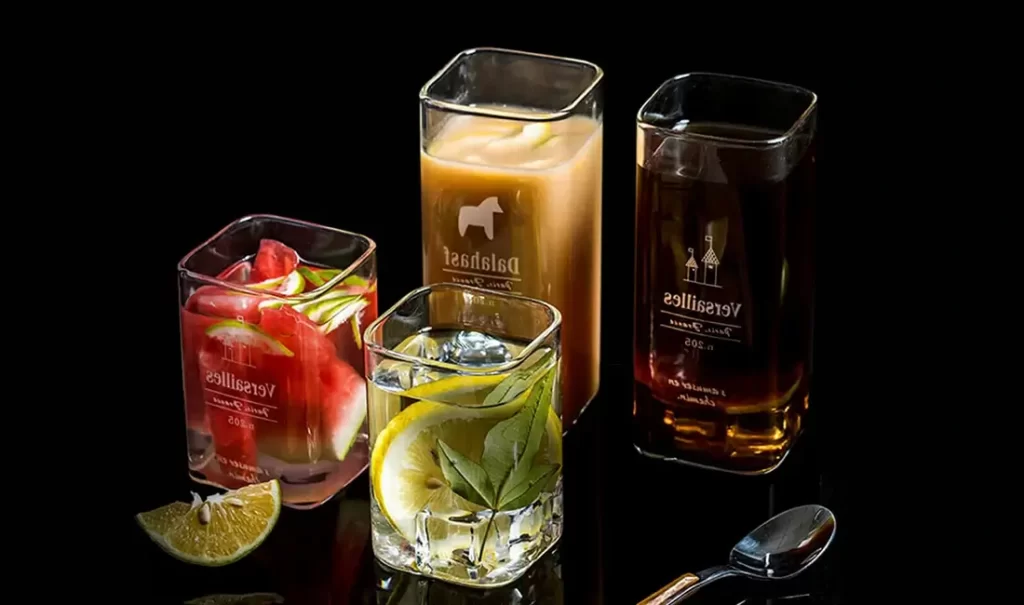Is Borosilicate Glass from China Safe?
Borosilicate glass has gained popularity in recent years due to its exceptional thermal resistance, durability, and versatility. It is commonly used in various applications, from laboratory equipment to kitchenware. However, concerns have arisen about the safety of borosilicate glass products imported from China. In this article, we will delve into the intricacies of this issue, exploring the quality variations, safety concerns, regulations, and alternatives associated with borosilicate glass from China.
What Is Borosilicate Glass?
Borosilicate glass is a type of glass that contains boron trioxide, which imparts unique properties to it. It is known for its high thermal resistance, making it ideal for use in laboratory glassware, cookware, and lighting products. Its ability to withstand sudden temperature changes without shattering has made it a popular choice among consumers and industries alike.
Why China is a Major Producer of Borosilicate Glass?
China has emerged as a major producer of borosilicate glass for several reasons. Firstly, it boasts abundant natural resources, including boron-rich minerals required for glass production. Secondly, China’s manufacturing capabilities and cost-effective labor have contributed to its dominance in the global glass industry. Additionally, the country’s strategic investments in glass manufacturing infrastructure have solidified its position as a key player in the borosilicate glass market.
Quality Variations in Borosilicate Glass from China
One of the primary concerns surrounding borosilicate glass from China is the significant variation in quality standards. While some Chinese manufacturers adhere to stringent quality controls, others may prioritize cost-cutting over quality assurance. This variation can lead to differences in the durability and safety of borosilicate glass products.
Safety Concerns
Reports of borosilicate glass products from China shattering or failing to withstand temperature fluctuations have raised safety concerns among consumers. These incidents highlight the potential risks associated with lower-quality glass, especially in applications where safety is paramount.
Regulations and Standards
To address safety concerns, international organizations and regulatory bodies have established standards for borosilicate glass production. These standards aim to ensure that borosilicate glass products meet specific safety and quality criteria. Importantly, regulatory authorities play a crucial role in enforcing these standards and conducting quality checks on imported glass products.
How to Identify Safe Borosilicate Glass
Consumers can take certain precautions to identify safe borosilicate glass products. Look for markings or certifications indicating that the product complies with international safety standards. Additionally, consider purchasing from reputable manufacturers and retailers with a track record of selling safe glassware.
Alternatives to Chinese Borosilicate Glass
For consumers concerned about the safety of borosilicate glass from China, there are alternative options available. Some countries have their own reputable borosilicate glass manufacturers, and these products may be perceived as safer. However, it’s essential to carefully evaluate the quality and safety claims of any alternative products.
Case Studies
To illustrate the potential risks associated with borosilicate glass from China, let’s examine a couple of case studies where glassware failures had significant consequences. These real-life examples underscore the importance of ensuring the safety of such products.
Case Study 1: Laboratory Glassware Failure In a research laboratory, a borosilicate glass flask from China shattered during an experiment, causing chemical spills and endangering researchers. This incident prompted a review of the laboratory’s glassware procurement practices and led to a shift towards more reliable sources.
Case Study 2: Cookware Safety Concerns Reports of borosilicate glass cookware cracking or exploding during use raised concerns among consumers. Investigations revealed that some of these incidents were linked to low-quality glass products imported from China, emphasizing the need for heightened awareness when choosing cookware.
Consumer Feedback and Reviews
Checking consumer feedback and reviews can provide valuable insights into the safety and quality of borosilicate glass products. Pay attention to user experiences and any recurring safety issues mentioned in reviews. This information can help you make informed purchasing decisions.
Industry Insights
Experts in the glass industry emphasize the importance of rigorous quality control and adherence to safety standards in borosilicate glass production. They highlight that reputable manufacturers prioritize safety and invest in technology and processes to ensure the reliability of their products.
Balancing Quality and Cost
When purchasing borosilicate glass products, it’s essential to find the right balance between quality and cost. While higher-priced products may offer enhanced safety and durability, it’s not always the case that lower-priced options are unsafe. Evaluating products based on their certifications, manufacturer reputation, and user reviews can help consumers make informed choices.
Global Borosilicate Glass Market
The global borosilicate glass market continues to grow, driven by demand from various industries. As consumers become more discerning about safety and quality, manufacturers are under increased pressure to maintain high standards. This market evolution may lead to improvements in the overall safety of borosilicate glass products.
Conclusion
In conclusion, borosilicate glass from China, like any other product, exhibits variations in quality and safety. While some Chinese manufacturers produce high-quality, safe glassware, others may fall short of international standards. It is crucial for consumers to exercise caution, conduct thorough research, and consider alternatives when necessary to ensure their safety when using borosilicate glass products.
FAQs
- What is borosilicate glass, and why is it popular? Borosilicate glass is a type of glass that contains boron trioxide, known for its high thermal resistance and durability. It is popular for its use in laboratory equipment, cookware, and other applications where resistance to temperature changes is crucial.
- Are all borosilicate glass products from China unsafe? No, not all borosilicate glass products from China are unsafe. Quality standards vary among manufacturers, so it’s important to research and purchase from reputable sources.
- How can I check if my borosilicate glass product is safe? Look for markings or certifications indicating compliance with international safety standards. Additionally, consider user reviews and feedback to assess product safety.
- What are the alternatives to Chinese borosilicate glass? Alternatives include borosilicate glass products from other countries with established quality standards. Some consumers also opt for tempered glass or other heat-resistant materials.
- Is borosilicate glass worth the investment? Borosilicate glass is worth the investment for applications where thermal resistance and durability are essential, such as laboratory work and high-temperature cooking. However, it’s important to choose a reputable manufacturer to ensure safety and quality.



